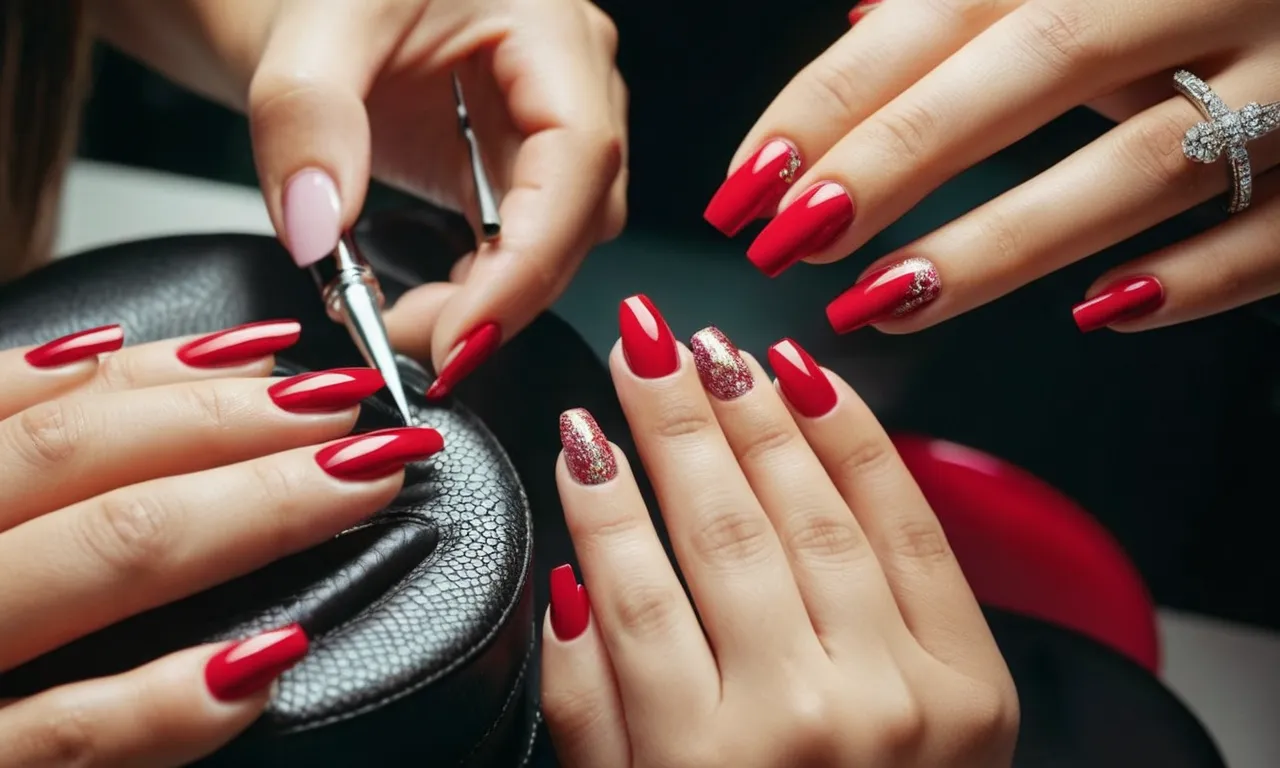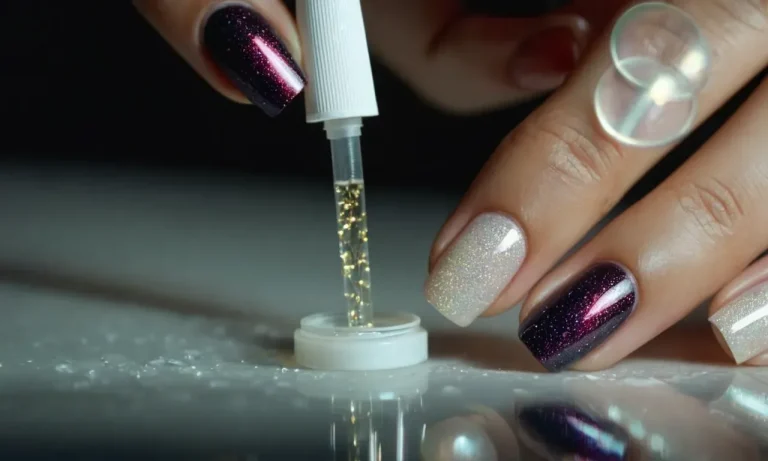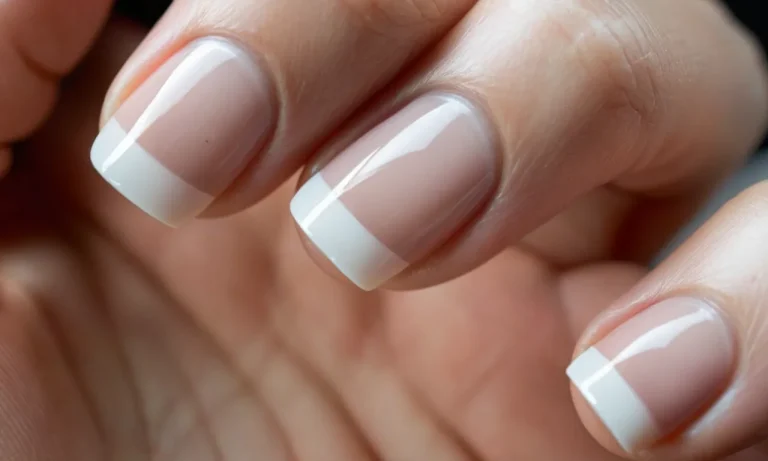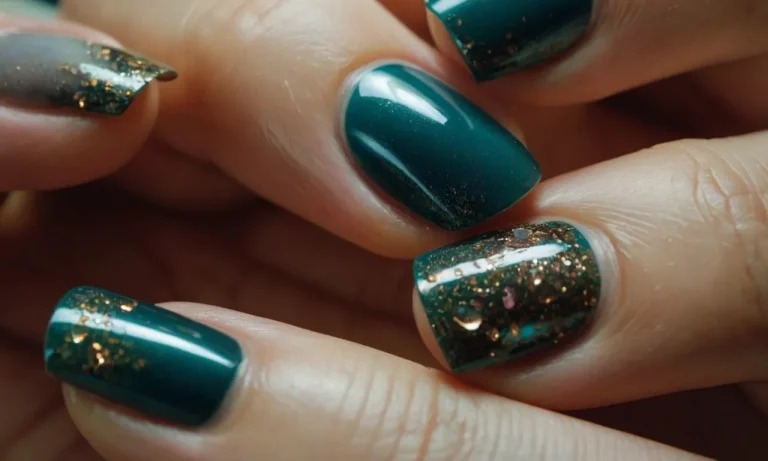Can You Do Acrylic Nails With A Cosmetology License?
Acrylic nails have become an increasingly popular service offered at nail salons and spas. Their customizability and durability make them a top choice for many clients looking to extend and beautify their natural nails.
This has left many hopeful nail technicians wondering: can I offer acrylic nail services if I have a cosmetology license?
If you’re short on time, here’s a quick answer to your question: In most cases, yes, having a cosmetology license enables you to perform acrylic nail services in a salon setting, provided you have the proper training and certification.
In this comprehensive guide, we will cover everything you need to know about performing acrylic nails with a cosmetology license. We will outline acrylic nail training requirements, regulations, necessary certifications, and steps to take to legally offer acrylic nails in your salon.
What is a Cosmetology License?
A cosmetology license allows individuals to legally practice cosmetology services like hair styling, nail services, esthetics, and skin care. Obtaining a cosmetology license involves meeting educational requirements, passing exams, and fulfilling other state-specific criteria.
Maintaining a cosmetology license requires licensees to uphold certain standards and renew their licenses periodically.
Definition and Scope
A cosmetology license authorizes individuals to provide a wide range of beauty services to clients in a salon or spa setting. These services typically include:
- Hair care – cutting, coloring, styling, etc.
- Nail care – manicures, pedicures, acrylic nails, etc.
- Skin care – facials, waxing, makeup, etc.
- Electrolysis – permanent hair removal
The scope of practice allowed under a cosmetology license varies by state. For example, some states issue separate licenses for nail technicians or estheticians. But a full cosmetology license lets licensees perform all common salon services.
Acquiring a License
To earn a cosmetology license, candidates must complete training at a state-approved cosmetology school and then pass a state exam. Here are the typical licensure requirements:
- Graduate from cosmetology school – Complete a program ranging from 1,000 to 2,500 training hours, depending on your state.
- Pass state exams – Most states use the National-Interstate Council of State Boards of Cosmetology (NIC) exams.
- Submit license application and pay fees – Fees vary but often range from $50-$150.
- Pass a criminal background check – Candidates cannot have certain criminal convictions.
- Meet age and education requirements – For example, being at least 16 years old and having a high school diploma or equivalent.
After fulfilling these steps, candidates receive their initial cosmetology license. All states require licenses to renew periodically, such as every 2 years.
Maintaining and Renewing a License
To keep a cosmetology license active, holders must complete continuing education classes and pay renewal fees on time. For example:
- Complete 6-12 continuing education hours per renewal period.
- Pay renewal fees every 2 years, such as $75-$150.
- Submit updated contact and work information.
Ethical standards must also be maintained. Complaints against licensees or criminal convictions can result in disciplinary action or revocation of a cosmetology license. Basically, following state regulations and practicing services safely and honestly allows licensees to renew their credentials.
Acrylic Nail Services Training Requirements
Basic Training Covered in Cosmetology School
Getting a cosmetology license requires completing a state-approved training program, which typically takes 9 months to 1 year. During this training, aspiring nail technicians learn the fundamentals of various nail services like manicures, pedicures, and basic acrylic application.
The curriculum covers topics like:
- Nail anatomy and physiology
- Sanitation and disinfection procedures
- Basic manicure and pedicure techniques
- Nail shaping and cuticle care
- Applying gel and regular polish
- Acrylic application and removal basics
With this foundation, graduates can perform simple acrylic fills and repairs. However, most states require an additional certification to offer full acrylic nail enhancement services.
Advanced Certification Needed for Acrylics
After earning a cosmetology license, nail techs need specialized training to professionally apply acrylics. There are certificate programs at cosmetology schools and manufacturers like NSI that teach critical skills like:
- Choosing and preparing acrylic products
- Proper acrylic application techniques
- Precision filing and shaping
- Avoiding damage to the natural nail
- Advanced acrylic art and design
A 2021 survey by the Professional Beauty Association found that 58% of nail salons require employees to hold manufacturer acrylic certification. Complying with state regulations and using proper methods protects clients and minimizes infections or injuries.
State Regulations for Performing Acrylic Nails
Rules Vary by State
Licensing requirements for performing acrylic nails can vary quite a bit from state to state. Some states have specific regulations regarding acrylic nail services, while others lump these services in with general cosmetology licensing rules. Here are some examples of how state laws can differ:
- In California, a standard cosmetology license allows you to perform all nail services, including acrylics. No separate or specialized training is required.
- In Texas, you need a specific nail technician license in order to apply acrylic nails. This requires completing a 600-hour training program approved by the state.
- New York requires nail specialists to complete a 250-hour training course and pass an exam to be licensed for acrylic nails and other nail services.
- Some states like Colorado have no special licensing requirements – acrylic nails can be done by anyone as long as proper sanitation practices are followed.
As you can see, the rules governing acrylic nail services are dependent on each state’s cosmetology regulations. It’s important to check with your state’s board of cosmetology to understand exact requirements.
Examples of Common Regulations
Though specific details vary, most states do share some common elements in their acrylic nail licensing regulations:
- Requiring a minimum number of training hours, often ranging from 250-600 hours.
- Covering sanitation, disinfection, chemistry, nail anatomy, diseases and disorders, client safety, and legal/ethical issues.
- Passing a written and practical exam for licensure.
- Renewing the license every 2 years with proof of continuing education.
- Restricting certain hazardous products like MMA (methyl methacrylate).
- Requiring proper ventilation and protective gear.
Additionally, some states allow apprenticeships or supervised trainee periods for those learning acrylic nail application. They may also require a separate license, permit, or certification for businesses providing nail services.
Though acrylic nail regulations are complex and vary greatly, the goal across all states is protecting public health and safety. Following state guidelines ensures proper training, sanitation, and client protection when offering acrylic nail services.
Liability Insurance & Salon Requirements for Acrylic Nails
Importance of Liability Insurance
Having proper liability insurance is crucial for any nail technician offering acrylic nail services. Acrylic nails require the use of harsh chemicals and filing implements that can potentially cause injury or reactions in clients.
Liability insurance protects the technician in the event a customer tries to sue for damages related to an injury or reaction sustained during service.
Typically, a comprehensive general liability policy that covers bodily injury and property damage will suffice. The policy should have at least $1 million in coverage to adequately protect against potential lawsuits, which can rack up high legal fees and settlement costs quickly.
The insurance company would provide legal defense and cover any payouts up to the policy limits.
In addition to general liability, it’s also wise for nail technicians to carry separate professional liability insurance, also known as errors and omissions insurance. This policy would respond specifically in cases where a client alleges improper service or technique resulted in damage.
For example, if a nail client develops an infection and blames poor sanitization practices by the technician, professional liability insurance would come into play.
Liability insurance coverage is often relatively affordable for independent nail techs, with premiums costing $300 to $500 per year on average. Some beauty insurance companies like Beauty insured even specialize in offering policies tailored to salons and spas.
Ventilation and Equipment Needs
Proper ventilation is critical when working with the strong chemicals used in acrylic nail application and removal. The fumes from acrylic powders, primers, glues and removers can cause headaches, dizziness, nausea and other health issues if exposure is excessive.
At minimum, nail salons should have local exhaust ventilation at every station where chemicals are used. This might consist of a small hood installed just above where the client’s hands will be placed, with a vent drawing air away from the technician’s breathing zone.
More thorough ventilation includes a chemical air filtration system for the entire salon.
Technicians also need proper equipment to safely apply, shape and remove acrylic nails. Essential tools include:
- An electric nail file with variable speed settings and dust collection
- High quality non-porous nail clippers
- UV or LED lamp for acrylic curing
- Non-metal cuticle pushers and cuticle nippers
- Sanitizable acrylic nail brushes
- Protective gloves, masks and eyewear
Investing in professional grade tools helps reduce potential nail damage and enhance end results. Keeping tools properly cleaned and sanitized between uses is also a must for safety.
In addition, acrylic powder and liquid containers, dappen dishes, and other surfaces that come into contact with nail chemicals need full disinfection between clients. Salon owners should provide labeled, tight-sealing containers to enable proper disinfection procedures.
Steps to Legally Offer Acrylics with a Cosmetology License
1. Complete Training and Gain Acrylic Certification
Though having a basic cosmetology license allows you to provide nail services, getting specific training and certification in acrylic nails is crucial. Look for an accredited acrylic nail technician program that covers topics like nail anatomy, different acrylic products and techniques, proper application and removal, nail diseases and disorders, and state safety requirements.
This shows you have the expertise to properly and safely apply acrylics. Many cosmetology schools offer add-on acrylic certification courses.
2. Know Your State’s Specific Regulations
Nail regulations can vary widely by state, so research the specific rules in your area. For example, some states require a separate nail technician license to offer acrylics, while others allow it under a standard cosmetology license. Some states require taking an examination.
Ensure you comply with all regulations before offering acrylics to avoid penalties.
3. Acquire Insurance and Any Required Permits or Licenses
Protect yourself legally and financially by getting salon insurance that covers acrylic nail services. This is often required to operate legally. Additionally, make sure your salon business is properly registered and that you have any necessary permits or licenses beyond your personal cosmetology license.
Some states or cities require special permits to offer acrylic nails or use certain nail products and tools like UV lamps.
4. Set Up Proper Ventilation and Equipment in Your Salon
Acrylic nails require using solvents and other chemicals that mandate proper ventilation. Install exhaust fans and vents to remove fumes and dust. Also acquire tools like professional-grade nail tables, sanitation supplies, ventilated manicuring tables, UV lamps, air purifiers, and primer for acrylic application.
Follow all state equipment regulations. Having the proper setup keeps you compliant and creates a safe, comfortable space for clients.
5. Market Your New Acrylic Nail Services
Promote that your salon offers acrylic nails so clients know they can get this popular service from you. Update your website, post on social media, run email blasts, display signage in your salon, pass out coupons or flyers, and leverage word-of-mouth referrals.
Consider offering acrylic nail specials as an introductory promotion. Stay on top of nail trends and techniques to retain clients.
Conclusion
In summary, having a cosmetology license enables nail technicians to perform acrylic nail services in most cases. However, proper training, certification, insurance coverage, salon set up, and compliance with state regulations are critical to legally offer acrylic nails.
With the right preparation and qualifications, those with a cosmetology license can expand their nail services menu to include acrylic nail enhancements. This allows for more creativity and increased business, letting certified techs showcase their artistic talents while meeting client demand for durable, customizable acrylic nails.







